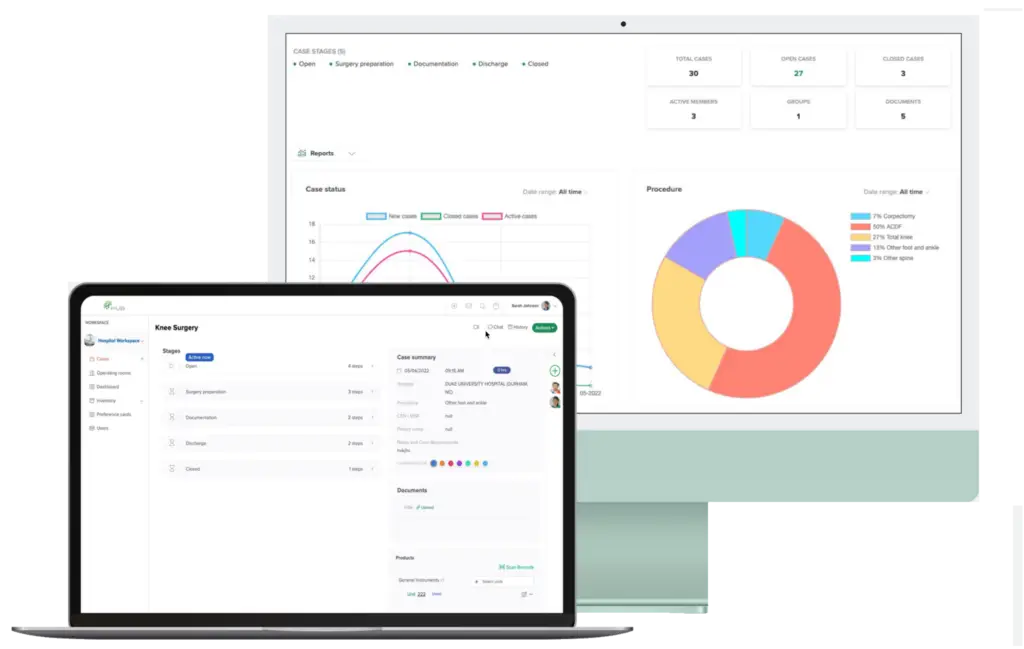Surgery scheduling is a crucial aspect of any healthcare facility. It involves coordinating various resources, including surgeons, operating rooms, and equipment, to ensure that surgeries are performed in a timely and efficient manner. However, it is not just about logistics and organization; it also plays a significant role in patient satisfaction. In this article, we will discuss the art of surgery scheduling and how it can help achieve efficiency and patient satisfaction.

The Importance of a Surgery Scheduling Checklist
A surgery scheduling checklist is a critical tool for any healthcare facility. It helps ensure that all necessary steps are taken before, during, and after a surgery. This includes verifying patient information, obtaining consent, and preparing the operating room. By following a checklist, healthcare providers can reduce the risk of errors and delays, leading to a more efficient and satisfactory experience for both patients and staff.
Key Elements of a Surgery Scheduling Checklist
- Patient Verification: Confirm patient identity and details to avoid mix-ups.
- Consent Forms: Ensure all necessary consents are obtained and documented.
- Pre-Operative Preparation: Verify that all pre-op protocols are followed.
- Operating Room Preparation: Ensure the room is ready with all necessary equipment and supplies.
- Post-Operative Care: Plan for immediate post-surgery care and patient discharge.
Streamlining the Surgery Scheduling Workflow
The surgery scheduling workflow involves multiple steps, from the initial consultation to post-operative care. To achieve efficiency, it is essential to streamline this process. This can be done by implementing an electronic scheduling system that allows for easy communication between all parties involved. This system can also provide real-time updates on the status of surgeries, allowing for better coordination and resource allocation.
Benefits of an Electronic Scheduling System
- Real-Time Updates: Keep all parties informed of any changes or updates.
- Resource Management: Optimize the use of operating rooms and equipment.
- Improved Coordination: Facilitate better communication between surgeons, nurses, and administrative staff.
Prioritizing Urgent Cases
In a healthcare facility, there will always be urgent cases that require immediate attention. It is crucial to have a system in place to prioritize these cases and ensure that they are scheduled as soon as possible. This can be achieved by having a designated team or individual responsible for triaging urgent cases and adjusting the surgery schedule accordingly.
Strategies for Handling Urgent Cases
- Triage System: Implement a triage system to assess and prioritize urgent cases.
- Flexible Scheduling: Maintain some flexibility in the schedule to accommodate emergencies.
- Dedicated Team: Assign a dedicated team to manage and prioritize urgent cases.
Effective Communication
Communication is key in surgery scheduling. It is essential to have open and clear communication between all parties involved, including surgeons, nurses, anesthesiologists, and patients. This can help prevent misunderstandings and delays, leading to a more efficient and satisfactory experience for everyone.
Enhancing Communication in Surgery Scheduling
- Regular Meetings: Hold regular meetings to discuss the surgery schedule and address any issues.
- Clear Protocols: Establish clear communication protocols for sharing information.
- Patient Communication: Keep patients informed about their surgery schedule and any changes.
Utilizing Technology
Technology has revolutionized the healthcare industry, and surgery scheduling is no exception. By utilizing technology, healthcare facilities can automate certain tasks, such as appointment reminders and patient follow-ups, freeing up staff to focus on other important tasks. Additionally, technology can help track and analyze data, providing insights into areas for improvement in the surgery scheduling process.
Technological Tools for Surgery Scheduling
- Automated Reminders: Use automated systems to remind patients of their appointments.
- Data Analytics: Analyze scheduling data to identify trends and areas for improvement.
- Electronic Health Records (EHRs): Integrate EHRs to streamline information flow and improve accuracy.
Conclusion
Efficient surgery scheduling is crucial for both the healthcare facility and the patients. By following a surgery scheduling checklist, streamlining the workflow, prioritizing urgent cases, and utilizing technology, healthcare facilities can achieve efficiency and patient satisfaction. It is an art that requires constant evaluation and improvement to ensure the best possible outcomes for all parties involved.

How HUB Healthcare Can Help
HUB Healthcare provides a comprehensive solution designed to enhance communication in healthcare, streamline care coordination, and improve overall workflow efficiency. Our platform includes features such as medical case management software, healthcare document management, and healthcare analytics to ensure that all aspects of patient care are optimized. By leveraging HUB Healthcare’s robust tools, organizations can reduce workflow bottlenecks, automate repetitive tasks, and facilitate better collaboration among healthcare providers. This not only improves work quality but also enhances patient outcomes, making HUB Healthcare an essential partner in achieving healthcare excellence. Visit our Help Center to learn more about optimizing your healthcare workflows.
Do you have any tips for efficient surgery scheduling? Let us know in the comments.




